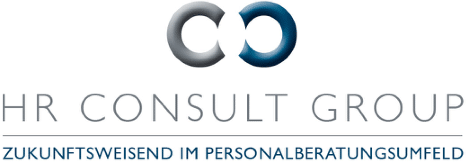SENATOR PARTNERS once again awarded "BEST personnel consultants" - A sign of continuity and excellence
Die SENATOR PARTNERS ist stolz darauf, im aktuellen Ranking der WirtschaftsWoche (Ausgabe 51/2024) erneut als „BESTE Personalberater“ ausgezeichnet worden zu sein. Diese wiederholte Anerkennung bestätigt nicht nur unsere langjährige Expertise, sondern auch unseren Anspruch, kontinuierlich höchste Standards in der Personalberatung zu erfüllen.
Wiederholung als Qualitätssiegel
Es ist keine Selbstverständlichkeit, in einem derart anspruchsvollen Wettbewerb wiederholt ausgezeichnet zu werden. Unsere Platzierung unter den besten Personalberatern zeigt, dass unsere systematische Arbeitsweise, unser innovativer Ansatz und unsere nachhaltigen Lösungen nicht nur einmalig, sondern dauerhaft überzeugen.
Es verdeutlicht, dass wir unsere Expertise stetig weiterentwickeln, uns den aktuellen Herausforderungen des Arbeitsmarktes anpassen und immer wieder neue Maßstäbe setzen.
Unsere Mission: Langfristiger Erfolg für Unternehmen und Kandidaten
Der Arbeitsmarkt bleibt in Bewegung: Die Zahl der offenen Stellen steigt, während die Zahl potenzieller Fach- und Führungskräfte schrumpft. Gleichzeitig rücken neue Erwartungen der Arbeitnehmer wie Work-Life-Balance, Sinnhaftigkeit der Arbeit und flexible Arbeitsmodelle in den Fokus. Unternehmen stehen nicht nur vor der Herausforderung, die besten Talente zu gewinnen, sondern diese auch langfristig zu binden.
Gerade in dieser dynamischen Umgebung ist es unser Anspruch, als verlässlicher Partner für Unternehmen und Kandidaten nachhaltige Lösungen zu bieten. Unsere wiederholte Auszeichnung unterstreicht unsere Fähigkeit, Unternehmen in einer der wichtigsten strategischen Aufgaben – der Besetzung von Schlüsselpositionen – erfolgreich zu unterstützen.
Warum wir zu den Besten gehören
Unsere Stärken liegen in unserer Kombination aus einem exklusiven Netzwerk, tiefgehender Marktkenntnis und innovativen Methoden wie der differenzierten Qualifikationsmatrix. Diese Faktoren ermöglichen es uns, nicht nur die besten Talente zu identifizieren, sondern auch sicherzustellen, dass diese perfekt zu den Anforderungen und der Kultur unserer Kunden passen.
Unsere erneute Platzierung unter den besten Personalberatern zeigt, dass wir diese Stärken konsequent einsetzen und unseren Kunden auch in einem immer anspruchsvolleren Marktumfeld Mehrwert bieten.
Vertrauen und Zusammenarbeit als Erfolgsfaktoren
Wie bereits die WirtschaftsWoche betont, ist Vertrauen die Basis jeder erfolgreichen Zusammenarbeit. Unsere Berater nehmen sich die Zeit, die Kultur, Ziele und Herausforderungen eines Unternehmens im Detail zu verstehen. Dies ist der Schlüssel, um nachhaltige und strategisch erfolgreiche Personalentscheidungen zu treffen.
Die wiederholte Auszeichnung bestätigt, dass wir nicht nur kurzfristige Ergebnisse liefern, sondern langfristige Partnerschaften aufbauen, die auf Vertrauen und Qualität basieren.
Dank an unsere Kunden und Partner
Dies ist eine Anerkennung unserer Arbeit, aber vor allem auch ein Beweis für das Vertrauen unserer Kunden und Kandidaten. Sie spornt uns an, weiterhin innovative Wege zu gehen und uns stets weiterzuentwickeln, um den höchsten Ansprüchen gerecht zu werden.
Wir bedanken uns bei der WirtschaftsWoche für diese erneute Würdigung und freuen uns darauf, auch in Zukunft als eine der führenden Adressen in der Personalberatung zu überzeugen.
SENATOR PARTNERS – Kontinuität und Exzellenz in der Personalberatung
Seit mehr als 30 Jahren sind wir ein verlässlicher Partner für Unternehmen auf der Suche nach Spitzenkräften. Diese erneute Auszeichnung unterstreicht unsere Rolle als strategischer Berater, der auch in Zeiten großer Umbrüche auf dem Arbeitsmarkt stets an der Seite seiner Kunden steht.
Wir laden Sie ein, gemeinsam mit uns Ihre nächsten Personalentscheidungen zu gestalten. Vertrauen Sie auf unsere Erfahrung und Expertise – denn Exzellenz kennt keine Kompromisse.


